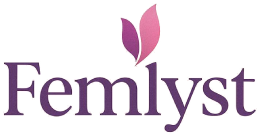While both men and women are susceptible to a variety of illnesses, some health issues affect women differently and more frequently. There are some issues that women are more likely to face adversely as they grow older. Here are a few health concerns that every woman should look out for as they age.
Starting a train of healthy behaviors is a must for women in their 30s. Spend this decade of your life laying the groundwork for future success, whether it’s through finding the perfect gynecologist and establishing a connection with them, or taking a hard look at your diet and routine. While 30 is still a young age in the broad scheme of things, understanding which health concerns might be lurking around the corner—be prepared before you’re shocked by an unexpected discomfort or suffering. Educate yourself about all the things you should be aware of as you get older.

Common health issues women face:
Back pain
By the time you’re in your 30s, those long hours on your feet will eventually catch up with you. While most individuals—an estimated 80 percent of adults—will have back pain at some time in their lives, back discomfort usually begins in the 30s and 50s for the majority of people.
Pregnancy and Infertility
For the vast majority of women, they choose their 30s as an ideal time to start a family. However, these plans do not apply to every one, since everyone has the right to choose whether or not they wish to have children, and all kinds of family planning decisions are valid. If you do aim to get pregnant though, it’s a great idea to have a close connection with your gynecologist. In this way, you may consult with a medical expert to identify your childbearing risks and concerns. Infertility and miscarriages are highly prevalent, with around 12 to 13 women out of every 100 couples having difficulty conceiving. Also, keep in mind that pregnant women must cope with a slew of medical difficulties, including depression (during and post-pregnancy), anxiety, high blood pressure, iron deficiency, and diabetes.
That’s why having a trustworthy gynecologist on your side as you begin your journey to becoming a parent is so important. They can help you with any of the health problems listed above.
Metabolism Decreases
It’s pretty usual to acquire weight through this stage of life. This might be due to a variety of factors such as decreasing metabolism or a change in your lifestyle. First and foremost, understand that weight increase is not a bad thing! The most essential thing is to maintain track of other health indicators and have open discussions with your medical staff. Overall, just as it was in your twenties, it’s important to maintain some amount of physical exercise each week (ideally a combination of cardio and strength training) to keep your body running as effectively as possible. Similarly, keep an eye on what you’re eating to make sure you’re getting enough fruits, vegetables, whole grains, and other nutritious foods.
Increased risks of cancer and other major medical issues
As you age, your chances of developing severe tumors and other medical problems increase. So, to live the longest and healthiest life possible, keep an eye out and get regular medical checkups done. This is particularly important for your breasts, cervix, and any other tumors that may arise.
Osteoporosis
Osteoporosis is a bone-weakening disorder. Although anyone can be affected, older women are at the biggest risk of acquiring the disease. Osteoporosis is four times more common in women than in men.
UTI symptoms
While they can occur at any age, many women over the age of 30 may see an increase in UTI symptoms. Women’s vaginal flora and pH change as they get older, and their local estrogen levels drop.
Dry scalp and Thinning hair
Hormonal imbalances and estrogen deficiency can have an impact on your skin with dry scalp and flakiness, as well as your fertility. This is most prevalent in your 30s. Even in relatively young women, hormonal variations, such as lowered estrogen levels, can cause hair loss.
Tendinitis
As you approach your 30s, you should be cautious about your workouts, or else you risk developing severe tendinitis. Tendons grow less elastic as you get older, which can lead to injuries from overuse and repetitive movement. Spend some time planning how to enhance your health.
Kidney stones
Kidney stones might be on the horizon as you approach your 30s. While the danger of these unpleasant mineral and salt deposits rises after the age of 30, a variety of lifestyle variables can also play a role. Kidney stones can be caused by dehydration, keto diets, diets heavy in colas, coffee and tea, and other factors.
Loss of vision
It’s time to start making those annual appointments to the eye doctor a priority if you’re in your 30s. According to research, adults over the age of 40 are more likely to develop irreversible visual impairment.
Hypopigmentation
Hypopigmentation, or the loss of pigment in the skin, is more common among women in their 30s.
After the age of 30, the number of melanocytes in the body naturally decreases, with an average fall of 6 to 8%. This causes hypopigmentation, which is a condition in which certain areas of the skin become lighter. These drop-in melanocytes are linked not only to a loss in melanin but also to a reduction in protection against harmful UV radiation, which can induce pre-malignant and malignant skin lesions.
Guidance is must
It’s crucial to remember that this list is simply a beginning point for staying healthy at this stage of life. Establish a tight connection with your primary care physician and/or gynecologist to ensure you’ve created a wellness plan that’s ideal for you.



